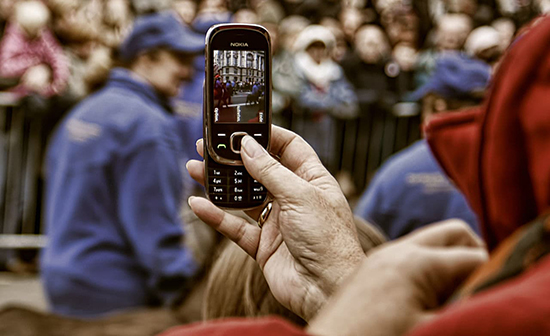Documentary Practice Workshop:
Between Verification & Construction Instructor: Manuel Correa Date & Time: September 30th, October 14th, October 28th, November 11th 09:00-11:30 ET

DESCRIPTION: This Workshop introduces the participants to the investigative potential of audiovisual images. Through practical exercises such as spatially situated testimony collection, audiovisual reconstruction of places, and open-source intelligence (OSINT), participants will explore their personal research interests from a novel perspective and produce a piece in a medium of their choice.
We all carry cameras with us all the time, everywhere. This is why the narration of global events has undergone radical changes in the last decade. The impact of cell phone video and photography on documentary practice is evident in the documentation of social outbursts in Colombia, Chile, Argentina, and Hong Kong. By finding dissemination on the internet, these audiovisual images bypass traditional channels of journalism and analysis, complicating the notion of source-truth. Their analysis and media framings play a vital role in worldmaking and the consolidation of political narratives. This Workshop will explore various research strategies, the conceptual development of projects, and innovative techniques to deal with testimony and editing.
Workshop outcomes:
-Fostering spatial analysis as a fundamental tool for the production of audiovisual narratives;
-Learning multiple forms of conducting interviews for the camera, including traditional interviews and situated testimonies;
-Strengthening critical thinking skills through verification and research tools;
-Exploring ways to investigate using audiovisual tools combined with open-source intelligence techniques;
-Understanding audiovisuals as tools for contemporary research and politics.
Session 1:
-Introduction to the students, workshop presentations, and objectives.
-Discussion of the final project and guidelines for the pitching exercise.
-Explanation of the technique of Situated Testimony and its relevance in contemporary audiovisual research.
-We will be referencing works by Gianfranco Rossi, Forensic Architecture, and Errol Morris to understand the application of situated testimony.
Session 2:
-Provide technical insights and support for the final project.
-Students propose/pitch their final projects, sharing their research interests and ideas.
-Introduction to Open-Source Intelligence (OSINT) and its role in audiovisual research and documentation.
Session 3:
-Exploration of soundscape, listening, and video editing techniques.
-Lecture on the significance of soundscapes in audiovisual narratives and how to effectively use them in investigative practices.
Session 4:
-Students will present their projects
-Each project will be critically evaluated and discussed by peers, providing feedback
-Review and discussion of various creative approaches and methodologies used in the projects.
-Closing remarks.
IMAGE: Tim Caynes, Citizen Journalism, 2015
To see The New Centre Refund Policy CLICK HERE.
To see The New Centre Refund Policy CLICK HERE.